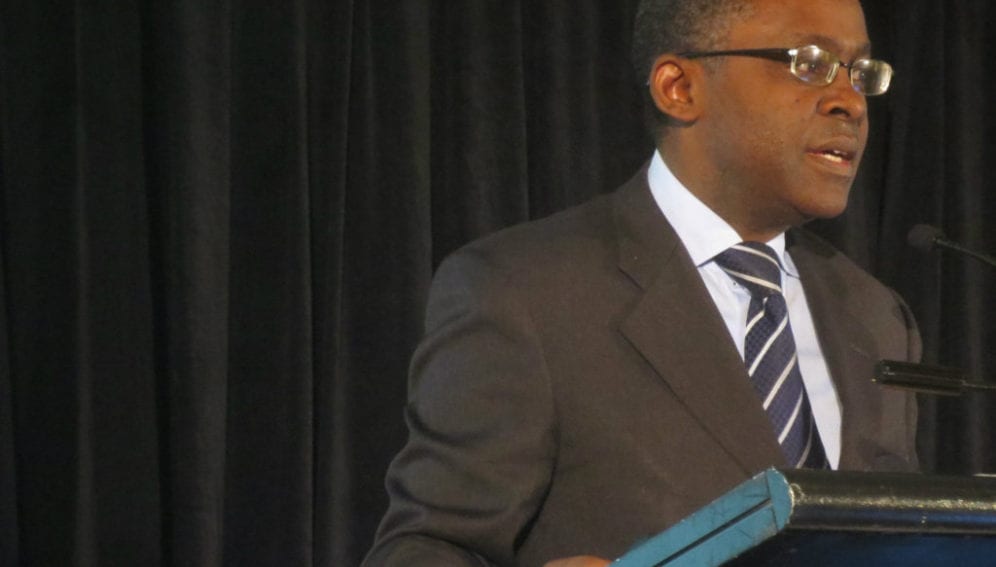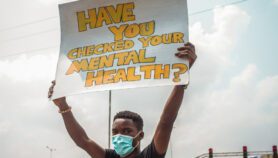By: Linda Nordling
Send to a friend
The details you provide on this page will not be used to send unsolicited email, and will not be sold to a 3rd party. See privacy policy.
Government science advisors from across the globe met for their first get-together last month (28-29 August) in Auckland, New Zealand. The meeting brought together scientists from many countries, including Brazil, Canada and Malaysia and the United Kingdom to discuss the role of science in public policymaking.
There were few representatives from Africa. Fifteen African prospective delegates from Burundi, Cameroon, Egypt, Ghana, Kenya, Nigeria, Rwanda, South Africa, Tanzania and Zimbabwe registered to attend.
Of these, three pulled out at the last minute, including a keynote speaker from Kenya.
“Few African governments employ scientists as key advisors to heads of state or ministers.”
Linda Nordling
Romain Murenzi, former science minister of Rwanda and current executive director of The World Academy of Sciences, who was the only African main speaker, typified the meeting’s call for scientifically literate societies.
“We need to get to a place where the science culture is pervasive and where we can truly say there is scientifically literate society. The role of science advice to government plays a big role in this,” Murenzi said.
Reasons for Africa’s no-show
The lack of many Africans at the Auckland meeting was a reflection of the situation on the continent. Few African governments employ scientists as key advisors to heads of state or ministers. Not even South Africa, with its sizeable scientific output, has a chief scientist to give advice on policy areas.
This poses a problem, particularly in times of crisis when politicians must make quick decisions on the science to heed, and the ‘science’ to ignore. There is plenty of bad science information out there, not to mention individuals who would take advantage of desperate situations.
A clear-cut case of ‘bad’ science nearly making it into a country’s health practice happened last month in West Africa’s Ebola outbreak. On 14 August, Nigeria’s health minister, Onyebuchi Chukwu, as reported in The Nigerian Voice and The Cable, told reporters that an experimental drug called Nanosilver had arrived in the country and was on its way to treat infected patients in Lagos.
The news — widely reported in Nigerian media — caused a storm on social media. On Twitter, jubilant comments welcoming the ‘drug’ mixed with critical voices questioning the scientific standing of the drug.
The absence of Nano Silver in the wider reporting about Ebola treatments in other countries, including the treatment of US and European health workers infected with the virus in West Africa, raised warning flags for many. “Have medical scientists/researchers examined and found evidence that Nanosilver will work against the Ebola virus in humans?” posed one tweet from Lagos.
“However, it is up to African governments to create these advisory posts. If not, the 2016 meeting is likely to be as short of African participants as the one in Auckland, not to mention that bad science will keep finding traction in African policymaking.”
Linda Nordling
Nigeria Health Watch, which monitors healthcare in the country, tweeted the health minister, urging him to “clarify” his position on Nanosilver. It asked, “Who exactly is recommending this?”
The doubters received further ammunition when the US Food and Drug Administration (FDA) issued a warning against fraudulent Ebola treatment products sold online. [1]
“Since the outbreak of the Ebola virus in West Africa, the FDA has seen and received consumer complaints about a variety of products claiming to either prevent the Ebola virus or treat the infection,” the statement on its website reads. “There are no approved vaccines, drugs, or investigational products specifically for Ebola available for purchase on the internet.”
Although the FDA statement did not mention specific drugs, a quick web search for ‘Nanosilver’ and ‘Ebola’ leads to the website of the Natural Solutions Foundation. The foundation, which says it didn’t provide Nigeria with Nano Silver, adds that because its treatment is a natural therapy, it is not subject to FDA regulations. [2]
The website notes: “No one needs to die from Ebola”. But it also adds that Nano Silver is being suppressed as an Ebola treatment by global health agencies. It goes on to offer the ‘treatment’ for sale for US$25 for a bottle of almost 500 millilitres of the ‘drug’.
Lessons from Ebola’s ‘Drug’
I don’t know whether the Nigerian health minister investigated Nanosilver before he spoke about it to the media. Had he done so, I hope he would have thought twice about speaking about it as a credible treatment.
To Nigeria’s credit, Nano Silver was never given to patients. The state commissioner of health for Lagos State told The Nation, a national newspaper, that the state was not ready to “take chances” with the health of patients. [3]
A few days later, according to media reports, the federal health minister spoke again to journalists, this time to tell them that Nanosilver had not been approved for use in humans by the National Health Research Committee of Nigeria.
According to TheCable news site, the minister also indicated that when he was announcing the arrival of Nano Silver he knew that the medicine would be subject to the committee’s approval. [4] The question is, should he have announced its arrival in the first place?
The answer would surely have been ‘no’ if Chukwu had had access to a chief scientific advisor in his ministry or in the cabinet with the administrative and financial clout to respond to urgent issues as they arise. As it stands, although the bogus drug was not administered to patients, Chukwu did provide ‘bad science’ with a platform.
Perhaps more dangerously, he muddled the federal government’s message on available Ebola treatments to an anxious and desperate public.
The next global science advisors’ meeting is due to take place in 2016 in Europe. I hope that more Africans will be present then.
There was quite a bit of discussion on the different requirements and challenges facing science advisory systems in developing countries in Auckland, says one of the delegates James Wilsdon, professor of science and democracy at the UK-based University of Sussex.
The agreed outcomes from Auckland included creating a global network of science advisors to strengthen international collaboration. Such a network would be hugely helpful for fledgling science advisors in African countries.
However, it is up to African governments to create these advisory posts. If not, the 2016 meeting is likely to be as short of African participants as the one in Auckland, not to mention that bad science will keep finding traction in African policymaking.
Linda Nordling, based in Cape Town, South Africa, specialises in African science policy, education and development. She was the founding editor of Research Africa and writes for SciDev.Net, Nature and others.
This article has been produced by SciDev.Net's Sub-Saharan Africa desk.
References
[1] US Food and Drug Administration. FDA warns consumers about fraudulent Ebola treatment products. (FDA, 2014)
[2] Natural Resource Foundation. Natural Resource Foundation presents Dr Rima truth reports. Natural Resource Foundation, n.d)
[3] Ekene-Okoro, M. and Adepoju, W.. Lagos rejects Ebola trial drug, Nano Silver. (The Nation, 2014)
[4] George, T. Chucku: Nano Silver unfit for Ebola care. (TheCable, 2014)














